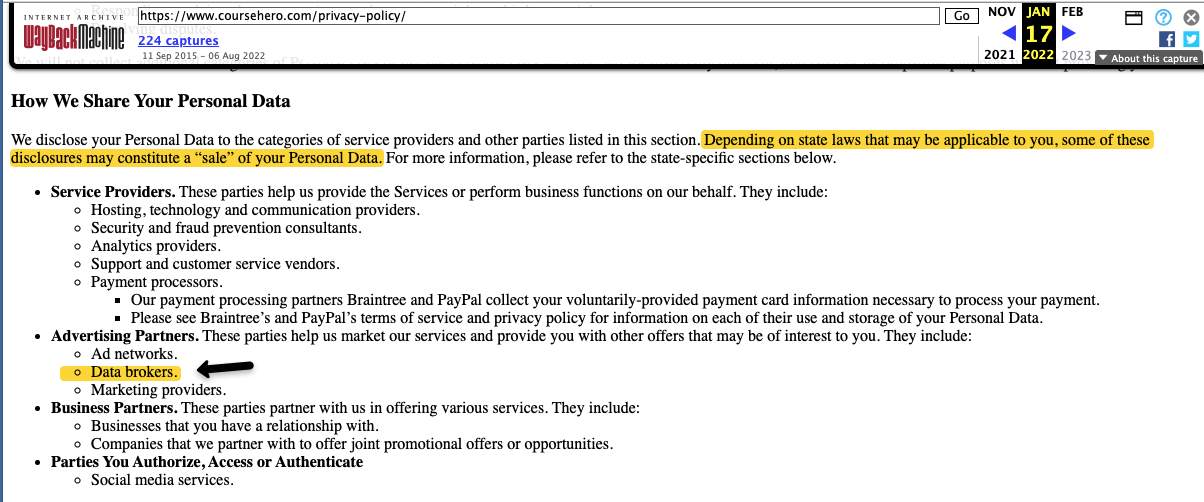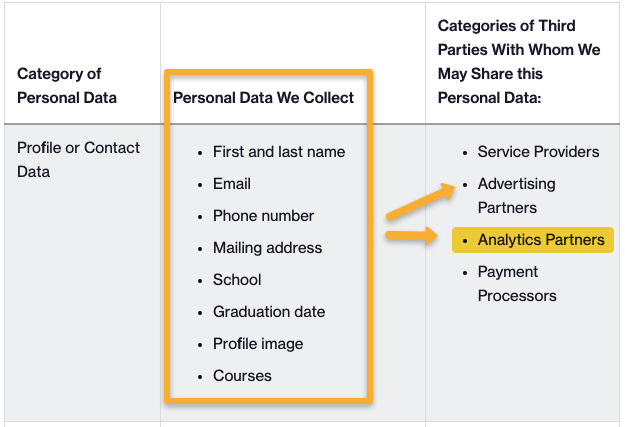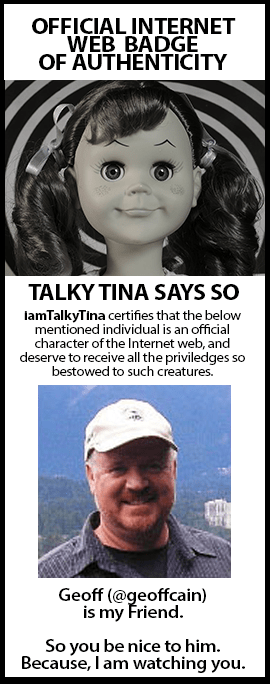Why Does This Matter?
Most people following this story know the essential details: Lumen Learning has off-loaded openly licensed course materials to Course Hero. Edsurge has been publishing industry articles on this. If you don’t know Course Hero, it is widely considered by educators as a student cheating site: students pay or upload course materials (their own tests and papers or the work of their teachers or fellow students) in order to gain access to so-called learning materials “sample” tests, papers, exams, etc. They routinely post copyrighted faculty materials, openly licensed materials, and student papers without permission, even though they claim that this is against their user agreements. Karen Costa has reviewed many of the ethical issues around Course Hero in her blog posting back in February. I highly recommend reading that. Why this all matters centers more than on licensing semantics of open content, it covers four critical areas in the higher education space: student data, transparency, open washing, and business models.
Student Data
Course Hero has no real duty to protect student data. They seem to take no responsibility for who uploads anything or what is uploaded. There is an “agreement” not to upload materials that you do not hold the copyright to but there are no safe-guards in place. If something under copyright is uploaded, it is the copyright holder that has to go through their onerous process to get the materials taken down. They are also not bound by FERPA or any other standards of student protections. If there are any data issues, it will be the burden of the institutions that allow campus access to such sites.
The Course Hero site since Feb. has removed the “Data Brokers” language and replaced it with “Analytics Partners” which seems to me just a more polite way of saying that they are still profiting off of student data:
Lack of Transparency
Also, unlike a government agency or public institution, there is absolutely no reason for Lumen Learning or Course Hero to reveal any financial details about any agreement they may have for moving open courses to Course Hero. They are not subject to public disclosures or the Freedom of Information Act. It is in THEIR best interest not to openly share information about their own company. They are businesses and not public agencies. When discussions were happening 10-12 years ago about commercial businesses being used to manage OER and open textbooks, I argued against the idea saying that they should be held by the public in the public interest and that if we turn that work over to businesses in the name of sustainability, that the OER could change hands into businesses that were less altruistic than others. Ironically, businesses competing like these, competing against public institutions and foundations, can get scarce grant monies from the organizations like the Gates Foundation to support this kind of open washing.
Open-Washing
Open Education Resources, open textbooks, and open courses are being used to attract traffic to a commercial site that sells student data to data brokers (or “analytics partners”) and requires faculty and student information for access. This is certainly against the spirit of open. In my opinion, turning a blind-eye to Course Hero practices is unethical and an irresponsible use of open licensed materials. I believe that this is why David Wiley and others were so adamant about the Creative Commons license “NC” (non-commercial) be considered “less open” because it interfered with private business profits. I have heard David Wiley and others claim that they are not selling OER but a platform. That is like selling jewelry but claiming it is the packaging and not the jewelry you are selling. If there were no jewelry in the box, no one would buy it. Even Creative Commons continues to push that idea despite the fact that it only benefits corporations and has nothing to do with protecting faculty intellectual property from exploitation by irresponsible actors or protecting students which might be the best arguments for a non-commercial license. Creative Commons lists the non-commercial license as “less open” but we always have to ask “less open for whom?” What is fascinating is that for all the arguments against using the NC license, Lumen Learning uses a lot of material with NC on it. So using an NC license must be just fine because it is not changing how they use the material at all. Take the case of Lumen’s English I textbook. Like much of Lumen’s properties it has content that is labeled “NC”:
My question to Lumen Learning would be this: is your current use of these materials what you think the authors of the material intended for them to be used? I am sure there are some legal gymnastics that allow for this, but I would contend that no one would expect a corporation to repackage faculty work for profit with this license let alone have it passed off to what is widely regarded as a student cheating site.
Business Models
We will always have vendors of some kind in the education sector. The cost of doing business should not be the safety of the students or the exploitation of faculty intellectual property by bad or irresponsible actors. The solutions are already here: there are education institutions, non-profits, and foundations that are already supporting OER. There are other business models out there that we should be supporting rather than unaccountable corporations that play fast and loose with student data. There are foundations and non-profits whose bottom line relies and trust and relationships rather than money.
Be The Change
Many colleges block access to Course Hero because of its reputation as a student cheating site. In the latest Edsurge industry piece, Sean Michael Morris, Vice President of Course Hero, is quoted as saying “’As a representative of Course Hero, I would say, try to get your university to not block us anymore. That would be great,’ Morris says, later clarifying that that was a joke. ‘But honestly, I mean, the OER is generally available other places as well,’ meaning that other sites are also hosting the text from these open course materials.” I would encourage colleges and other institutions to block such sites as long as they continue to traffic in student data to data brokers which is something that generally the “other places” don’t do.
But we have to do more than that. There are a lot of things we are already doing that can remedy this situation.
- Hold corporations accountable for how they handle student data. Institutions should vet corporations for how they handle student data just as we should with accessibility. It is not enough that a corporation “follows the local laws,” the laws have not yet caught up with ability for data brokers to re-aggregate data and to put student information at risk.
- Student care should come first. The right for students and faculty to be safe should over-ride the right for someone to make a profit.
- Ask your state to partner with universities and libraries to promote and publish OER.
- Hold free, open events in your colleges and institutions to promote and support OER. Build institutional networks that support, promote, and create OER and Open Education Practices.
- Public institutions should be favoring non-profits, foundations, and open source. We need to re-think our spending to help create long-term relationships and networks of creation and support over vendors whose commitment, accountability, and ethical values will change with every new owner and partnership.
- We need to hold more discussions in the education community about the ethical expectations we should have with OER.
In-house solutions to OER take time: they can be cumbersome and they do cost money, but education should be in the hands of educators who are held to standards and protections that commercial businesses are not.







